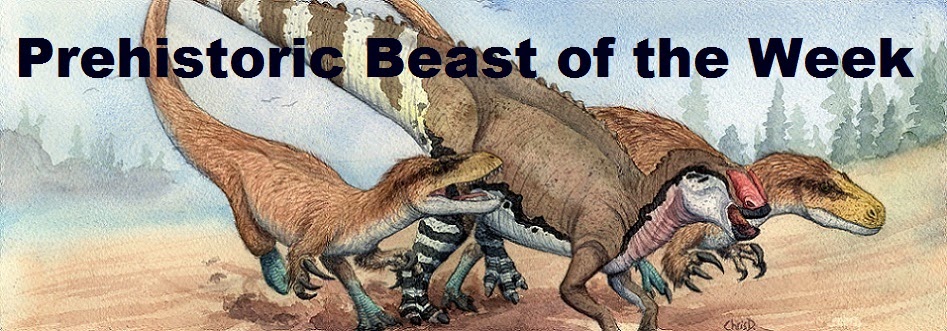.jpg) |
| Eosinopteryx brevipenna life restoration by Christopher DiPiazza |
Eosinopteryx lived during the late Jurassic in what is now China about 160 million years ago. It would have coexisted with its close relative, Anchiornis (a dinosaur I briefly mentioned in an earlier post about feather color). The two dinosaurs are very similar in appearance except for a few bold differences. Anchiornis had long primary feathers all down its legs to its feet and on its tail. This is not the case with this new specimen, Eosinopteryx. Eosinopteryx had no feathers on its tarsels (foot bones) and had fuzzy, down-like feathers on its tail which was unusually short for a non-avian theropod dinosaur. This suggests the former (Anchiornis) was more adapted to spending time in the trees while the latter (Eosinopteryx) may have been more comfortable on the ground. Its an interesting possible demonstration of adaptive radiation (which is a diversity of related animals within a habitat through evolution) in long extinct animals. Another odd thing about Eosinopteryx is the fact that its second toe didn't have an over-sized killer claw like all of its closest relatives did.
 |
| Nearly complete fossil skeleton of Eosinopteryx including a few feathers! |
Join us next week for another prehistoric animal! As new dinosaurs are discovered I will do my best to review them as soon as possible on here. Also as always if you have a particular animal in mind that you would like to see reviewed feel free to request it on our facebook or leave a comment below!
Works Cited
Godefroit, P.; Demuynck, H.; Dyke, G.; Hu, D.; Escuillié, F. O.; Claeys, P. (2013). "Reduced plumage and flight ability of a new Jurassic paravian theropod from China". Nature Communications 4: 1394. doi:10.1038/ncomms2389. PMID 23340434

No comments:
Post a Comment